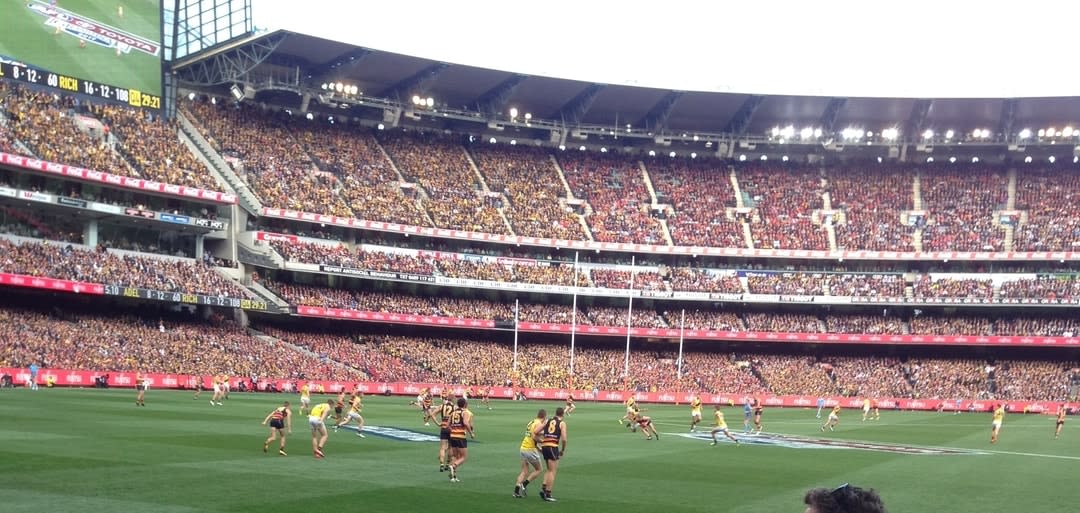
Recently, Australian Football League (AFL) players have reported that they regularly receive death threats via social media, from angry fans whose bets didn’t come off. In an age when online bookies offer exotic and multi-bets that allow betting on the first goalkicker, or the disposal count of a particular player, or some combination of such micro-events, punters can see the player as an impediment to their gambling success.
For the most part, gambling is an irrational activity – the persistence of optimism over experience. Sadly, it's also a matter of addiction and serious harm for many who gamble regularly. Hearing reports of threats to football players over failed wagers is not so surprising, no matter how alarming. It does, however, demonstrate the consequences that gambling can have on people’s emotional and mental health. Not to mention their finances and personal relationships.

Betting on sport is big business globally. In Australia, more than $1.5 billion is lost on sports wagers every year (turnover is about 10 times that). Although that's a lot of money, poker machines in pubs, casinos and clubs take about $15 billion a year. Overall, Australians lose more than $25 billion every year on all forms of gambling. But wagering on sport has been the fastest-growing segment of the gambling market for some years, and along with wagering on horse and greyhound racing, accounts for losses of about $5 billion a year (about two-thirds of it now online, in normal times).
As online bookmakers proliferated following a High Court decision in 2008 (permitting bookies registered in one state to offer bets in others), advertising ramped up significantly. Outrage at the plethora of ads and paid commentary during sporting events (especially football games) made sports betting a big issue, especially among parents of sports-mad children. This prompted a voluntary ban on ads during actual game time, and introduction of a national consumer protection framework, led by the Australian government.
Nonetheless, online bookies remain huge broadcast advertisers, reportedly spending more than $500 million between 2015-2019.
The COVID effect
The COVID-19 pandemic has changed aspects of the gambling landscape again. On 23 March this year, terrestrial gambling venues were closed in order to limit spread of the disease. This meant that money normally destined for the pokies and casino tables wasn’t being spent.
There was some concern that the combination of stress, boredom, anxiety and inability to use terrestrial gambling venues might lead to an explosion in online gambling. We now know that despite some increased expenditure, there was no wholesale move to online gambling among those who primarily gamble on pokies. However, among specific groups – especially, it appears, young men – there were sometimes significant increases in online gambling expenditure.
One of the problems facing bookmakers and their clientele, of course, during the earlier phase of COVID-19 restrictions was the lack of sport to gamble on. Bookies offered exotic bets, such as when the NBL would reopen. But in Australia, horse racing never stopped. This appears to have been where most punters put their money.
Most of the people who experience harm from gambling are not, themselves, gamblers. AFL players harassed by losing punters are only the latest members of that group. Most commonly it’s family members (spouses, partners, children), friends, or employers who experience the consequences.
With football of all sorts now available again, it’s no surprise that the nexus between gambling and sport has resurfaced. Both the Australian Football League (AFL) and the National Rugby League (NRL) are sponsored by (or as they put it, corporate partners of) the online bookmaker Sportsbet. Football Federation Australia and Cricket Australia have teamed up with Bet365.
The Australian Open doesn’t currently have a bookmaker as a sponsor. In 2016, a tennis corruption scandal exploded just as the tournament commenced, with plenty of coverage of the sponsorship deal that the organisers had struck with William Hill, an online bookmaker.
The AFL apparently has a deal that provides $10 million a year, with added payments related to the size of betting on the game. The NRL is said to have a similar deal.

Players who’ve been harassed by disappointed punters are reportedly suggesting that the AFL has a case to answer for getting into bed with the bookies. Indeed, it’s hard to reconcile an official policy that lectures players and officials about not gambling on the game, and then happily takes a slice of the action. Tennis, Cricket, NRL and most other codes have similar rules – and similar financial arrangements.
Although Australian sport has been spared scandals of the Hansie Cronje variety, there's no doubt that big gambling markets create plenty of incentive for attempts at match-fixing and corruption. Many sporting codes globally have experienced these difficulties, and there’s no reason to think that Australia is any different. Indeed, even low-level tennis and football comps have been subject to corruption scandals, as has the NRL.
The situation at the AFL is even more perplexing when seen in the light of the active moves by many AFL clubs to distance themselves from gambling. Until recently, many clubs operated poker machine venues to supplement their revenue, with Victorian clubs alone generating pokies revenue of $244 million between 2013-2015.
Now, Victorian clubs Richmond, Geelong, Melbourne, and Collingwood have either sold or indicated an intention to cease operating their pokies venues. Greater Western Sydney thought about acquiring a venue, but went into a co-branded childcare business instead. Other clubs persist, of course, and the association of rugby league with suburban pokies palaces is legendary.
Nonetheless, for many in the sport, gambling is on the nose.
Read more: New research shows pokies operators aren't nearly as charitable as they claim
More intriguingly, it’s a puzzle as to why the AFL itself feels it needs the money it gets from the bookies. The AFL’s revenue in 2019 was almost $800 million, half of it from broadcasting rights and media. The bookies contributed somewhat less than 2%.
One argument is that partnering with the bookmakers allows access to data for ensuring integrity. However, the bookies should be providing intelligence on that without requiring a financial arrangement. Building a better national integrity system (and backing it up with a global agreement on integrity in sport, similar to the World Anti-Doping Agency) would make more sense.
The most harmful forms of gambling in Australia are pokies and wagering. We know from longitudinal data that about 41% of monthly gamblers using pokies, or wagering on horses or sports, will experience harm at some level. And we also know that most of the people who experience harm from gambling are not, themselves, gamblers. AFL players harassed by losing punters are only the latest members of that group. Most commonly it’s family members (spouses, partners, children), friends, or employers who experience the consequences.
Those who profit from gambling usually emphasise the fun it may involve. But the potential for corruption of the sport that people love is enormous. The price for getting into bed with the bookies is high, and it’s mostly paid by those who can least afford it.





